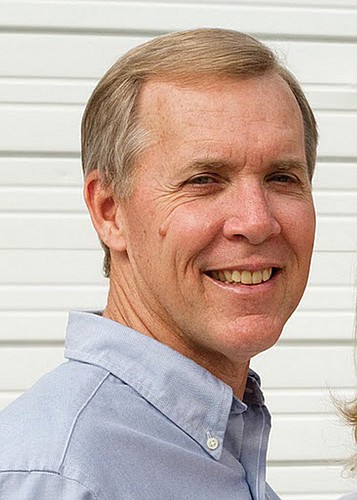- November 24, 2024
-
-
Loading

Loading

The future is retirement. At least that’s what a report from the University of Florida says about Sarasota’s economy.
Few people have seen the report done by the Bureau of Economic and Business Research that was commissioned by Sarasota County to justify the Energy Economic Zone (EEZ), a project that the county proposed along SR 681 last year. Unfortunately, the report was kept mostly out of view because, instead of supporting the EEZ, the report questioned whether Sarasota had a competitive advantage in manufacturing or research, and it said that there weren’t enough tax subsidies available to justify an economic development strategy that depended on them.
Despite undermining the EEZ, the UF economists offered their advice for Sarasota’s economy. They commented on our success at attracting affluent retirees, and they predicted that retirees will become an even larger part of our economy in the future. The report states, “When economists study Sarasota, they are struck by how strongly it specializes in being a retiree destination.”
But, rather than dedicating Sarasota’s economy to retirees permanently, they recommended that we ultimately transform our economy into a knowledge economy. The report stated, “Cities that are knowledge centers are moving farther and farther ahead of the others.” However, they said that retirees can help us get there.
The professors noted that well-to-do retirees have an affinity for the same quality-of-life amenities that highly-educated young professionals seek. Their report highlighted the shared importance of a pristine natural environment and cultural activities.
Accordingly, the thrust of the professors’ argument was that our economic development strategy should be to build a community with high quality-of-life standards, and that by doing so we can sustain a strong economy by attracting the baby boom retirees, while simultaneously laying the groundwork to attract the “creative class.”
Although the Florida economists were confident about Sarasota’s continued attraction to retirees, they expressed less confidence in our ability to make the transformation to a knowledge economy. Other than our quality of life, our competitive advantage in that sector is weak. According to the report, Sarasota’s workforce has a low percentage of college graduates, and it stated, “College-educated workers attract other college-educated workers.”
The emphasis on college education is the same thing we heard from David Bergman, the economist for the Fruitville Initiative. He compared Sarasota to Santa Barbara of some years ago, saying that they both had economies based on “the newlywed and nearly dead,” his references to tourism and retirement. But, he said that the growth of the University of California branch in Santa Barbara had transformed its economy, and he suggested that Sarasota would prosper if we could develop a large university.
In his book, “The Rise of the Creative Class,” Richard Florida reinforces the importance of educated workers, even going so far as to argue that a major college itself is essential. He states, “The presence of a major research university is a basic infrastructure component of the creative economy … and a huge potential source of competitive advantage.”
So, as we anticipate the end of this Great Recession, let’s not bet our economic future on tax subsidies or hourly-wage jobs. Sarasota’s future is retirement and, eventually — if we are successful — the knowledge economy. The retirement of 70 million baby boomers in the next 25 years will keep Sarasota’s economy humming as long as we protect our environment and enhance our quality of life. During that time, we must aggressively expand our colleges and focus on building the amenities that will attract the young, college-educated professionals. It’s a daunting challenge for a community built on retirement.